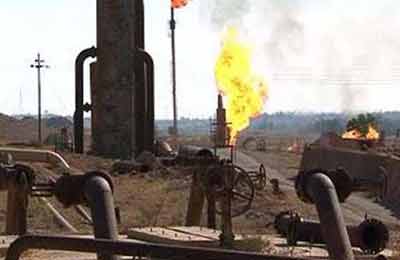
After Kirkuk, Kurds want quarter of Iraq oil revenue
Arbil, June 17, 2014
By David Sheppard
A bolder Kurdistan, a bulwark against ISIL forces and strengthened by the seizure of the oil city of Kirkuk, wants a greater share of Iraq's oil revenue.
The Kurdistan Regional Government believes its share of total Iraqi oil sales should be as high as 25 percent, the KRG's official spokesman said on Monday.
The Kurdish position has arguably never been stronger.
Baghdad's military retreat from the north under the Islamic State of Iraq and the Levant (ISIL) led assault last week allowed the Peshmerga forces of KRG to seize control of long-disputed Kirkuk and its oil reserves.
If the autonomous region holds onto Kirkuk, revenues from its major oil fields could far surpass any budget offer from Baghdad, boosting its any ambition of succeeding as a fully independent state.
Safeen Dizayee, the former foreign affairs and education minister for the KRG and the autonomous government's official spokesman, said that while Arbil was supposed to receive 17 percent of Iraqi oil revenues under current agreements, the total figure should be raised - based on its growing population and rising oil output.
"The figure should be far higher and indeed when the censuses are conducted we believe it could average 25 percent," Dizayee said from his office at the Council of Ministers in the region's capital, Arbil.
"The 17 percent was just an estimate that was used. But even now we don't receive that."
While Dizayee said the KRG continued to pursue a legal solution to the status of Kirkuk with Baghdad, he acknowledged that his government was arguably in its strongest position ever to secure the city many Kurds consider their historical capital.
"We have been very patient. This has been an issue since the early 1960s, but obviously now we have a stronger position," Dizayee said.
"We have not ever, even in 2003 when we had the opportunity, tried to take control of Kirkuk and to make a de facto position and impose it."
But he said that an atmosphere of mistrust permeated relations with Baghdad, and that the federal government's refusal to hand over the KRG's share of the budget since January was driving the two further apart.
"The fact is there has been a deliberate effort to marginalize, sideline and ignore these efforts," Dizayee said, adding that budget cuts from Baghdad were behind the KRG's decision to pursue independent oil sales outside the federal government's control.
INDEPENDENT OIL SALES
On Monday Turkish Energy Minister Taner Yildiz said a third tanker was set to load a cargo of Kurdish crude oil from the Mediterranean port of Ceyhan on June 22, despite fierce protests from the government in Baghdad who have tried to block the sales.
"The flow of oil is continuing and we will continue to send it out and export it," Dizayee said, adding that around 120,000 barrels of crude was flowing on a new pipeline to Ceyhan each day. The KRG wants independent sales to rise even higher.
"In order to cover the needs of the Kurdistan region or to counter the 17 pc of the budget that should come from Baghdad but that has been cut for the last six months we need at least 400,000 barrels per day to be exported to meet that budget."
That may be difficult for the KRG to achieve, however, due to a lack of suitable export infrastructure.
The 600,000 bpd Kirkuk pipeline, which accounted for the bulk of Iraq's northern crude oil exports, has been offline since March following insurgent attacks.
Attempts to repair it have been thwarted by Islamic militants in the region, who have targeted repair men trying to fix sections of the line that passes through territory outside KRG control.
"For the last three months under normal - well almost normal - security conditions to repair the pipeline it hasn't been successful," Dizayee said, when asked if the line would be prepared before the end of this year.
"It all depends to what extent the pipeline runs through areas controlled by these (ISIL) elements. It wouldn't be easy to predict." -Reuters







